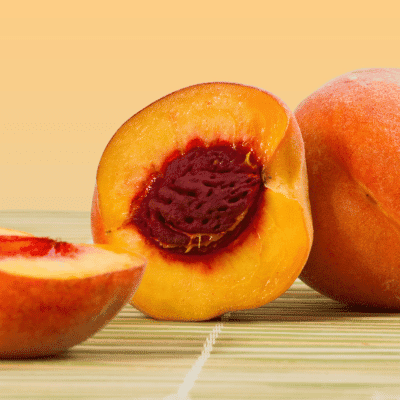Introduction
Apricots are a tasty fruit with a long history and many health benefits. Dry apricot are particularly special because they have a distinct flavor and last a long time. In this complete guide, we’ll look at all the advantages of dried apricots benefits and explain why you should add them to your diet. We’ll talk about their nutrition and how they can improve your overall well-being. Let’s explore this amazing fruit together.
What are Dry Apricots?
Dry apricots are apricot fruits that have been dried naturally or through a dehydration process. This process removes most of the fruit’s water content, making them look shriveled and giving them a strong flavor. People often eat dried apricots as a healthy snack, and they are also used in many different recipes because of their special texture and sweetness.
The Nutritional Profile of Dry Apricots
Dry apricots are packed with essential vitamins, minerals, and dietary fiber. Here is a breakdown of their nutritional composition per 100 grams:
- Calories: 241
- Carbohydrates: 63 grams
- Protein: 3.4 grams
- Fat: 0.5 grams
- Fiber: 7.3 grams
- Vitamin A: 96% of the Daily Value (DV)
- Vitamin C: 4% of the DV
- Vitamin E: 6% of the DV
- Potassium: 21% of the DV
- Iron: 6% of the DV
These numbers highlight the significant nutritional value of dried apricots, making them an excellent addition to a balanced diet.


Benefits of Dry Apricots for Digestive Health
Dry apricots are well-known for their ability to improve digestive health. They contain a lot of fiber, which helps keep the digestive system healthy and prevents issues like constipation. The fiber acts as a natural laxative, making sure you have regular bowel movements and that waste is eliminated smoothly from your body.
Dried apricots also have sorbitol, a natural sugar alcohol that works as a gentle laxative. This substance helps soften stools, making them easier to pass. Eating dried apricots regularly can help relieve common digestive problems and support overall gastrointestinal health.
Dry Apricots and Weight Management
If you want to manage or reduce your weight, adding dried apricots to your diet can be helpful. These dried fruits are low in calories and fat, yet they offer a delightful sweetness that can satisfy your cravings for less healthy snacks.
The fiber in dried apricots is also beneficial for weight management. Foods that are high in fiber help you feel satisfied for a longer time, which can prevent overeating. By incorporating dried apricots as a snack or including them in your meals, you can enjoy a delicious treat while supporting your weight management efforts.
Improving Heart Health with Dry Apricots
Dried apricots are packed with nutrients that promote heart health. They are particularly rich in potassium, which is vital in maintaining optimal blood pressure levels. Consuming enough potassium helps relax blood vessels, alleviating strain on the cardiovascular system and reducing the risk of hypertension.
Moreover, the fiber in dried apricots assists in controlling cholesterol levels. Elevated cholesterol is a risk factor for heart disease, and a fiber-rich diet can help lower “bad” LDL cholesterol, consequently enhancing heart health.
Dry Apricots for Healthy Skin
Many people want to have healthy and youthful-looking skin. Dry apricots can help with this. The vitamin A in dried apricots helps regenerate skin cells and make your complexion look radiant.
Dried apricots also have antioxidants that fight oxidative stress. This stress can make you age faster and cause wrinkles. Eating dried apricots can give your skin the nutrients it needs to stay elastic and glowing.
Preventing Anemia with Dry Apricots
Anemia is a condition where there is a lack of red blood cells or hemoglobin in the blood. It can cause fatigue, weakness, and problems with thinking. Dried apricots can be helpful in preventing anemia because they contain iron.
Iron is an important mineral that helps in making red blood cells. When you include dry apricots in your diet, you can fulfill your iron needs and decrease the chances of developing anemia.
Dry Apricots and Bone Health
Dried apricots help improve bone health because they contain calcium and potassium. Calcium is important for keeping bones and teeth strong, and potassium helps prevent calcium loss through urine.
When you eat dried apricots regularly, you can support your bone health and decrease the chances of getting osteoporosis and fractures.
Reducing Inflammation with Dry Apricots
- Chronic inflammation is connected to health problems like heart disease, diabetes, and certain cancers.
- Dried apricots contain substances that fight inflammation in the body.
- The antioxidants and phytochemicals in dried apricots work together to lower inflammation and oxidative stress.
- This helps improve overall health and decreases the chances of chronic diseases.
Enhancing Brain Function with Dry Apricots
- Chronic inflammation is linked to health problems such as heart disease, diabetes, and certain cancers.
- Dried apricots contain substances that combat inflammation in the body.
- The antioxidants and phytochemicals found in dried apricots work in synergy to reduce inflammation and oxidative stress.
- This contributes to improving overall health and reducing the risk of chronic diseases.
Dry Apricots and Pregnancy
Pregnancy is an important period when good nutrition is vital for both the mother and the growing baby. Including dry apricots in a pregnant woman’s diet can be highly beneficial.
Dried apricots have iron, which helps prevent iron-deficiency anemia, a common condition during pregnancy. Iron is essential for making red blood cells and ensuring enough oxygen reaches the developing baby.
Furthermore, the fiber and folate in dry apricots aid in maintaining a healthy digestive system and preventing constipation, which is often experienced during pregnancy. By including dried apricots in their diet, pregnant women can acquire important nutrients while supporting their overall well-being.

How many dried apricots to eat per day during pregnancy?
Consult with a healthcare professional or a registered dietitian to determine the appropriate portion size of dried apricots during pregnancy. Consuming 1-2 dried apricot kernels per day is generally safe, but moderation is important due to the potential cyanide content.
| Pros | Cons |
|---|---|
| High in nutrients and minerals | High in natural sugars |
| Rich source of dietary fiber | High in calories |
| Excellent source of vitamin A | May cause digestive issues in some individuals |
| Promotes digestive health | It may contain sulfites as preservatives |
Dry Apricots and Eye Health
The bright orange color of dry apricots comes from the great beta-carotene they contain. Beta-carotene is a precursor to vitamin A, which is essential for maintaining good eyesight. Vitamin A plays a crucial role in supporting proper vision, especially in low-light conditions, and it helps safeguard against age-related macular degeneration and cataracts.
Eating apricot dry fruit regularly can supply your body with the vital vitamin A it needs to support excellent eye health and defend against vision-related disorders.
Boosting Immunity with Dry Apricots
- Apricot dry fruit are rich in antioxidants, which are important for a strong immune system.
- Antioxidants protect the body from harmful free radicals that can damage cells and weaken immunity.
- Dry apricots contain a moderate amount of vitamin C, which is a powerful antioxidant.
- Vitamin C helps produce white blood cells, enhancing the body’s immune response.
- Adding dried apricots to your diet can strengthen your immune system and lower the risk of getting sick.
Dry Apricots and Cancer Prevention
The antioxidants and phytochemicals present in dried apricots have been associated with cancer prevention. These compounds help neutralize harmful free radicals and protect cells from damage that could lead to cancer development.
Although more research is needed, incorporating dried apricots into a balanced diet rich in fruits and vegetables can provide potential cancer-fighting benefits.
Boosting Metabolism with Dry Apricots
A healthy metabolism is crucial for maintaining a healthy weight and overall well-being. Apricot dry can aid in boosting metabolism due to its fiber content and vitamin B complex.
Fiber-rich foods, such as dried apricots, require more energy for digestion, resulting in a temporary increase in metabolic rate. Additionally, the B vitamins in apricot dry fruit play a role in converting food into energy and supporting metabolic processes.
Find the most popular and fresh dry fruits
ShopDeHunza Organic Dry Fruits and Nuts
Frequently Asked Question
What are dry apricots?
Dried apricots are fruits that have been dried naturally or through dehydration. They have a shriveled appearance and a strong flavor. They are often consumed as a healthy snack or used in various recipes.
What nutrients are present in dry apricots?
Apricot dry fruit are rich in essential nutrients. They contain vitamins such as A, C, and E, minerals like potassium and iron, as well as dietary fiber. These nutrients contribute to various health benefits offered by dry apricots.
How do dry apricots benefit digestive health?
Apricot dry fruit are known for improving digestive health. Their high fiber content acts as a natural laxative, promoting regular bowel movements and preventing constipation. Additionally, they contain sorbitol, a gentle laxative that helps soften stools.
Can dry apricots help with weight management?
Yes, dried apricots can be beneficial for weight management. They are low in calories and fat while providing a satisfying sweetness. The fiber in dry apricots helps in feeling full for longer, reducing the likelihood of overeating and supporting weight management efforts.
Are dry apricots good for heart health?
Dry apricots contribute to heart health due to their potassium content, which helps maintain optimal blood pressure levels. The fiber in apricots dry also aids in controlling cholesterol levels, reducing the risk of heart disease.
Conclusion
Dry apricots are a yummy and healthy fruit with lots of benefits. They have lots of vitamins, minerals, fiber, and antioxidants. These things are good for your body. When you eat apricots dry, they can help your digestion, weight, heart, eyes, immune system, skin, hair, anemia, bones, inflammation, and brain. They can even help your body get rid of bad stuff. Dried apricots taste sweet and last a long time, so they’re a good way to get all these health benefits every day.
People Also Asked
How many calories are in dry apricots?
Dried apricots contain approximately 241 calories per 100 grams.
Do dry apricots provide vitamin C?
While dried apricots do contain a small amount of vitamin C, their vitamin A content is more significant.
Can dry apricots improve skin health?
Yes, dried apricots can benefit skin health. The vitamin A in dried apricots helps regenerate skin cells, promoting a healthy complexion. The antioxidants in dried apricots also protect against oxidative stress, which can contribute to premature aging.
Are dry apricots beneficial during pregnancy?
Including dried apricots in a pregnant woman’s diet can be highly beneficial. They provide iron, which helps prevent iron-deficiency anemia, and the fiber and folate in dried apricots support a healthy digestive system and prevent constipation commonly experienced during pregnancy.
How do dry apricots contribute to better sleep?
Dried apricots contain magnesium, which acts as a natural relaxant, promoting better sleep quality. Additionally, the natural sugars in dried apricots provide a small energy boost that can aid in falling asleep more easily.
